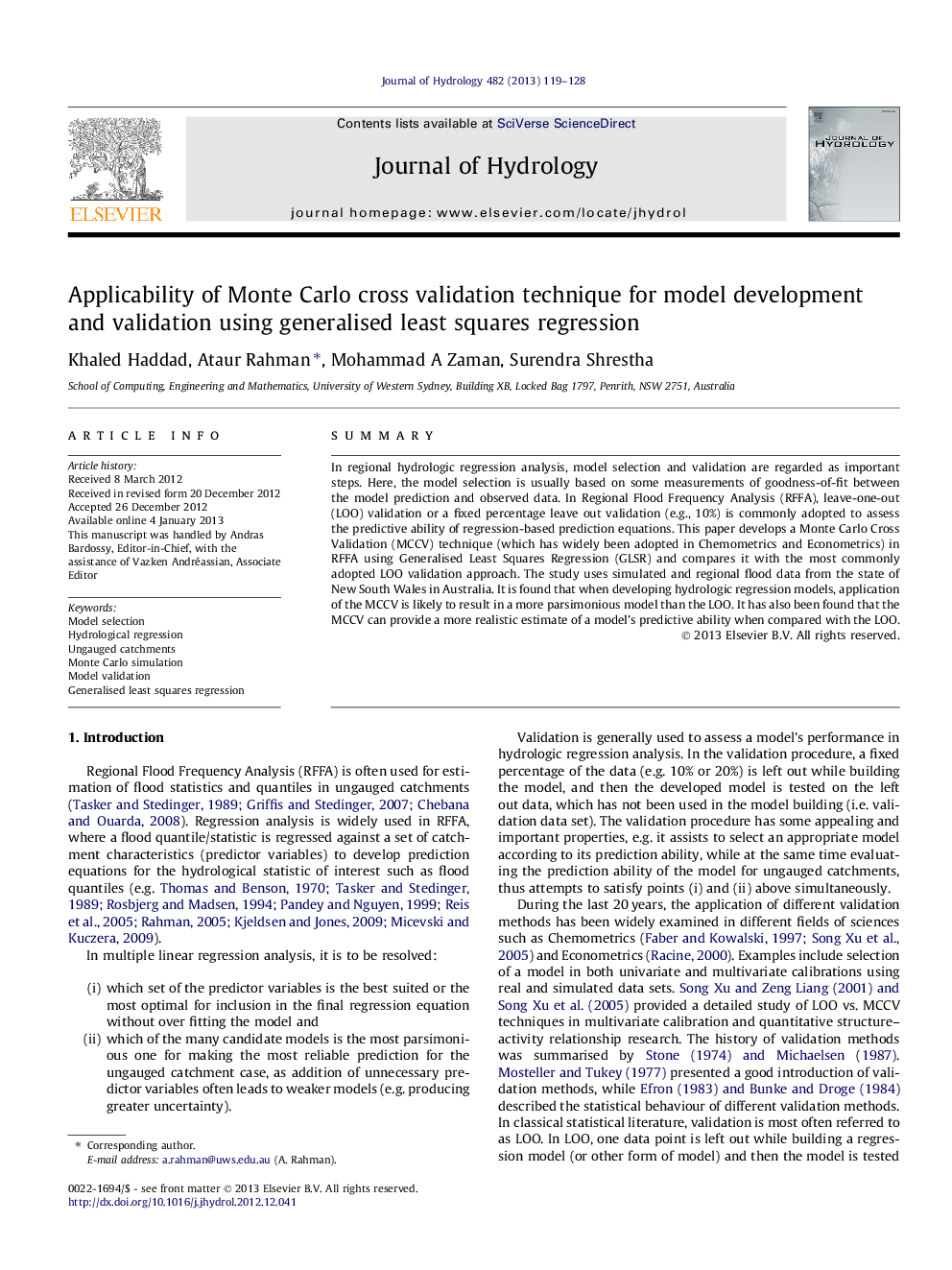| Article ID | Journal | Published Year | Pages | File Type |
|---|---|---|---|---|
| 4576463 | Journal of Hydrology | 2013 | 10 Pages |
SummaryIn regional hydrologic regression analysis, model selection and validation are regarded as important steps. Here, the model selection is usually based on some measurements of goodness-of-fit between the model prediction and observed data. In Regional Flood Frequency Analysis (RFFA), leave-one-out (LOO) validation or a fixed percentage leave out validation (e.g., 10%) is commonly adopted to assess the predictive ability of regression-based prediction equations. This paper develops a Monte Carlo Cross Validation (MCCV) technique (which has widely been adopted in Chemometrics and Econometrics) in RFFA using Generalised Least Squares Regression (GLSR) and compares it with the most commonly adopted LOO validation approach. The study uses simulated and regional flood data from the state of New South Wales in Australia. It is found that when developing hydrologic regression models, application of the MCCV is likely to result in a more parsimonious model than the LOO. It has also been found that the MCCV can provide a more realistic estimate of a model’s predictive ability when compared with the LOO.
► In hydrologic regression leave-one-out (LOO) or 10% leave out validation is common. ► We applied the concept of Monte Carlo cross validation in Regional Flood Estimation. ► Monte Carlo cross validation has a higher chance of delivering a parsimonious model.
